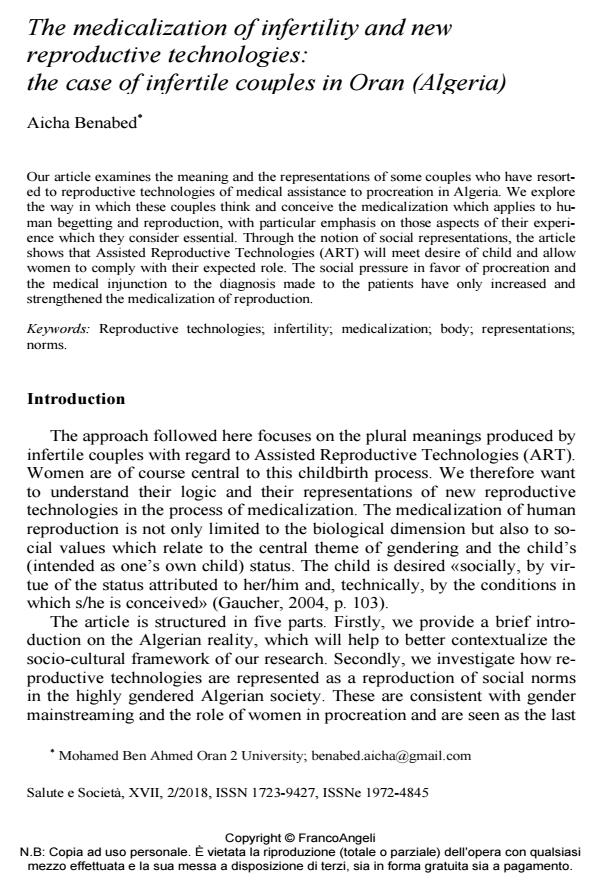The medicalization of infertility and new reproductive technologies: the case of infertile couples in Oran (Algeria)
Journal title SALUTE E SOCIETÀ
Author/s Aicha Benabed
Publishing Year 2018 Issue 2018/2
Language English Pages 13 P. 29-41 File size 71 KB
DOI 10.3280/SES2018-002003
DOI is like a bar code for intellectual property: to have more infomation
click here
Below, you can see the article first page
If you want to buy this article in PDF format, you can do it, following the instructions to buy download credits

FrancoAngeli is member of Publishers International Linking Association, Inc (PILA), a not-for-profit association which run the CrossRef service enabling links to and from online scholarly content.
Our article examines the meaning and the representations of some couples who have resorted to reproductive technologies of medical assistance to procreation in Algeria. We explore the way in which these couples think and conceive the medicalization which applies to human begetting and reproduction, with particular emphasis on those aspects of their experience which they consider essential. Through the notion of social representations, the article shows that Assisted Reproductive Technologies (ART) will meet desire of child and allow women to comply with their expected role. The social pressure in favor of procreation and the medical injunction to the diagnosis made to the patients have only increased and strengthened the medicalization of reproduction.
Keywords: Reproductive technologies; infertility; medicalization; body; representations; norms.
Aicha Benabed, The medicalization of infertility and new reproductive technologies: the case of infertile couples in Oran (Algeria) in "SALUTE E SOCIETÀ" 2/2018, pp 29-41, DOI: 10.3280/SES2018-002003